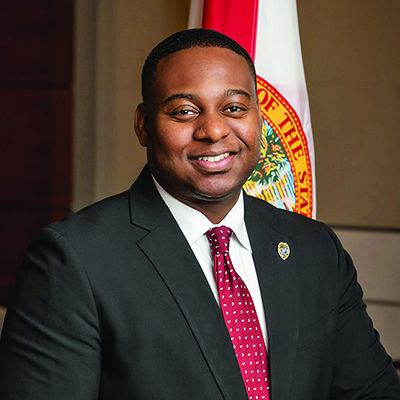In 1993, the Florida Supreme Court ruled it unlawful to charge individuals in cases where the sheriff’s office made crack cocaine and undercover deputies sold it before arrests.
By Daniel Johnson
(Source: Black Enterprise)
A Florida prosecutor announced plans to overturn up to 2,600 convictions tied to crack cocaine sales orchestrated by the Broward County Sheriff’s Office during sting operations from 1988 to 1990. Broward County State Attorney Harold F. Pryor made the announcement on Dec. 6.
In 1993, the Florida Supreme Court ruled it unlawful to charge individuals in cases where the sheriff’s office manufactured the crack cocaine and undercover deputies sold it before making arrests, according to The Associated Press.
“It is never too late to do the right thing,” Pryor said in a press release announcing his intention to clear the records. “The methods used by law enforcement and society to combat drug dealing in our community have evolved since that era. These records may be a dim memory or an unfortunate part of history to many, but they have had a long-lasting and severe impact on the lives of the people who were arrested – as well as their families and the wider community.”
Pryor also wrote a letter to Broward County Sheriff Gregory Tony on Dec. 5, notifying him of Pryor’s intention to clear the records of people who never should have been charged or arrested.
According to the press release, there is no indication that those cases had been formally vacated.
“These matters were well before our tenures. However, I am of the opinion that the State has an ethical duty and obligation to correct this injustice before destruction [of old records] is initiated,” Pryor wrote to Tony.
Sheriff Tony agreed with Pryor’s assessment, and said he is in support of Pryor’s initiative.
Ed Hoeg, a defense attorney and former public defender for Leon Williams—whose appeal prompted the Florida Supreme Court to ban the sting operations—revealed that some arrests took place near schools, resulting in harsher penalties.
“They were arresting people not for selling, but for purchasing, Hoeg told the Sun-Sentinel. “They had detention deputies posing as dealers. They would sell it, and these poor people who were addicts were buying it. And they were selling it within 1,000 feet of schools, so the penalties would be greater.”
According to the press release, Pryor’s office anticipates that the process of reviewing the paper files will take a considerable amount of time, and the office will be dedicating prosecutors and staff to the effort to determine who is eligible for their records to be sealed or expunged.
In 2022, the United States Justice Department issued updated guidelines calling for prosecutors to treat crack and powder cocaine as equals when sentencing people for drug related offenses.
Though the guidelines were not retroactive, they highlighted the racial disparities present in the criminal justice system.
“The crack/powder disparity in sentencing has no basis in science, furthers no law enforcement purposes, and drives unwarranted racial disparities in our criminal justice system,” Attorney General Merrick Garland wrote in the Justice Department memo.
According to Congress.gov, in 2023, HR 1062, otherwise known as the EQUAL Act, was reintroduced to the United States House of Representatives by Rep. Kelly Armstrong (R-ND) after it stalled in the Senate.
Per a press release from Sen. Cory Booker, “It is unjust that, for decades, baseless and unscientific sentencing disparities between crack and powder cocaine have contributed to the explosion of mass incarceration in the United States and disproportionately impacted poor people, Black and Brown people, and people fighting mental illness.”
Sen. Booker added, “This bipartisan legislation will help right the wrongs of our nation’s failed War on Drugs and reform our broken criminal justice system.”

